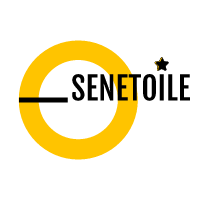default
•Schistosomiasis (also known as bilharzia or snail fever) is the fourth leading global disease
•Over 200m are infected worldwide, with 200 000 dying annually
•A single annual treatment for schistosomiasis costs $0.18
Lifelines: River of Hope profiles the extraordinary work of African health heroes as they tackle schistosomiasis (also known as bilharzia or snail fever), in Senegal. The fourth documentary in a groundbreaking eight-part series, Lifelines: River of Hope premieres on Al Jazeera English on 1 May 2014.
Schistosomiasis is the fourth leading disease globally and the second in tropical and subtropical areas.
200m people are infected worldwide, with 200 000 dying annually. Once inside the body, the water-borne parasite stunts physical and intellectual growth, particularly in children. After years of infection, the parasite can cause organ failure and cancer and also weakens the sufferer’s immune system, making them more vulnerable to HIV, malaria and tuberculosis infections.
Lifelines: River of Hope is the story of an epidemic that shook the medical world – and it’s also an account of a remarkable and novel idea that might just halt it.
The Senegal Basin is the site of the biggest outbreak of the disease the world has ever seen. It started 30 years ago when the Diama Dam was built across the Senegal River at the point where it drains into the sea. Up to
90% of the population in the river basin was infected and no one understood why - until a development specialist linked the explosion of schistosomiasis to the extinction of prawns in the river system caused by the dam
Now Project Crevette is re-introducing prawns into the river system - and the infection rates are dropping as the predatory prawns reduce the snail population that carry schistosomiasis. The next challenge is to keep going: without access to the sea where the prawns lay their eggs, the problem will remain. They need to build a fish ladder over the dam wall so that the prawns can migrate to breed and repopulate the entire river basin.
Alassane Ndiaye, a researcher for Project Crevette, is one of the health heroes leading the fight against schistosomiasis in the area. “When anyone gets sick in the village and needs professional attention, Alassane is the first call,” says Elizabeth Huttinger, the CEO of Project Crevette. “Alassane does everything from monitoring the prawns to monitoring the children. He hires crews of teens to do maintenance work when required, and
ensures the community's attendance for testing and treatment dates.”
For more information on schistosomiasis, visit http://www.aljazeera.com/
Watch and embed:
Lifelines: River of Hope promo: http://www.youtube.com/
Health hero profile: Alassane Ndiaye: http://www.youtube.
Watch and embed last week's episode about malaria: http://www.youtube.
ABOUT LIFELINES:
Lifelines: The Quest for Global Health highlights the work of inspiring Africans on the frontline of public health. The groundbreaking eight-part series is filmed up close as these health heroes forge dramatic breakthroughs while tackling nine of the worst diseases and conditions that afflict poor people: Guinea worm, leprosy, malaria, maternal and neonatal mortality, polio, rabies, river blindness, schistosomiasis (also known as bilharzia or snail fever), and trachoma.
South African Clifford Bestall – a Grierson, Emmy and Peabody award-winning documentary filmmaker – is the series director.
For more information on the series, visit http://aje.me/lifelines or follow Lifelines on Facebook at www.facebook.com/AJlifelines or on Twitter at @AJlifelines using #healthheroes to be part of the discussion.
-
 0
0
-
 0
0
-
 0
0
-
 0
0
-
 0
0
-
 0
0
Publié dans
News
Tags:
Dernier de SENETOILE NEWS
- La Chief Executive Officer (CEO) de la Fondation Merck, La Sénatrice, Dr. Rasha Kelej, célèbre la « Journée Mondiale du Diabète » en offrant sur 2080 bourses, 830 bourses pour le Diabète et l'Hypertension dans 52 pays
- Daimler Truck Middle East Africa annonce l'élargissement de ses responsabilités régionales
- Des chefs d’État, des ministres de l’Énergie, des investisseurs et des fournisseurs indépendants d’énergie se réunissent au Togo à l’occasion du West Africa Energy Cooperation Summit
- Chambre Africaine de l'Energie (AEC) félicite Trident Energy pour le succès de la production du puits intercalaire C-45, un grand pas en avant pour le secteur pétrolier et gazier de la Guinée Equatoriale
- Le Maroc et l’Estonie s’engagent à renforcer leur coopération socio-économique
Laissez un commentaire
Assurez-vous d'entrer toutes les informations requises, indiquées par un astérisque (*). Le code HTML n'est pas autorisé.







